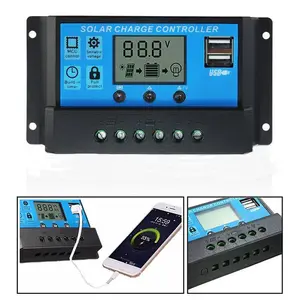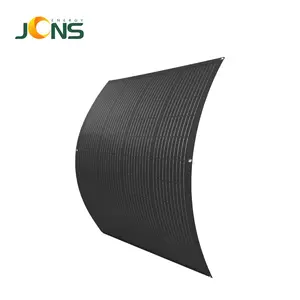Exploring Amorphous Flexible Solar Panels
Amorphous flexible solar panels represent a cutting-edge category in the solar energy market, offering versatility and adaptability for various applications. Unlike their crystalline counterparts, these panels are known for their thin-film technology that allows for a pliable design, making them an ideal choice for surfaces where traditional panels might not be suitable.
Types and Composition
The amorphous flexible solar panel sector encompasses a range of products, each tailored to different uses and specifications. At the core of these panels is amorphous silicon, which is less structured in comparison to crystalline forms, allowing for flexibility. Buyers can select from options like the lightweight foldable solar panel, which is perfect for portable energy needs, or the more permanent installations designed for solar roofing systems.
Applications and Versatility
The application of amorphous flexible solar panels is vast, extending from residential solar system installations to commercial solar panel systems. Their flexibility is not just physical but functional as well, as they can be integrated into a variety of structures, including unconventional and curved surfaces, without compromising on the absorption of solar energy.
Features and Efficiency
One of the standout features of amorphous flexible solar panels is their performance in low-light conditions. Their unique composition allows them to operate effectively even on overcast days, which is a significant advantage over traditional panels. Furthermore, these panels are constructed with a varying number of silicon pieces, commonly found in configurations of 36pcs or 60pcs, to suit different power output requirements.
Materials and Sustainability
Sustainability is a key factor in the production of amorphous flexible solar panels. The materials used are often sourced with environmental impact in mind, ensuring that the panels are not only efficient but also contribute to eco-friendly energy solutions. The thin-film technology employed in these panels requires less silicon, reducing the overall material consumption.
Advantages of Amorphous Technology
Choosing amorphous technology for solar applications comes with a host of advantages. These panels are known for their durability and resistance to shading, which is a common issue in solar energy generation. Additionally, the flexible nature of these panels opens up new possibilities for architectural designs, allowing for solar integration in a variety of building forms.
Incorporating amorphous flexible solar panels into your energy plan can be a strategic move towards sustainable and versatile power solutions. With a range of types and features, these panels offer a promising alternative for those looking to harness solar energy in innovative ways.

































 浙公网安备 33010002000092号
浙公网安备 33010002000092号 浙B2-20120091-4
浙B2-20120091-4